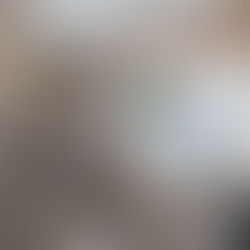The Death of Curiosity
Curiosity is at the heart of growth.
I was reminded of this the other day as I was driving around my two year old nephew. He kept moving between the questions, “What’s that?” and “Why?” He wanted to know about everything–from the blinking sign to the bulldozer on a trailer; he was curious about the world around him. He wanted to learn.

Which made me wonder, when does this curious stance towards the world end? Have we killed curiosity in education? Have we systematically dismantled this natural state in our students, and does it matter?
I often find myself, in my work spaces, listening to different podcasts, and the other day, I was listening to the podcast Dear HBR from the Harvard Business Review team. The topic at hand was how to navigate unwanted roles in the workplace, as in what do you do when your superior asks you to take on projects that you don’t want to do. I was struck by one of the expert's responses to a young man who was asked to take on a role as a coder in an organization, a role for which he was not necessarily trained. He asked the panel of experts whether he should quote, “suffer in his current job or look for a new job?” This particular expert suggested a different path, that “He get curious with his superiors.” She suggested that he ask why they thought this was an important role for him to take on right now. At first, I was like, “Really? He hasn’t already asked that question?” Then, I thought, “No, of course, he hasn’t.”
He never asked that question because we have moved away from the stance of “getting curious” for the false pretense of already knowing. We have been taught that it is better to assume we know than to reveal that we might not. Curiosity, so we have believed, reveals weakness, so we’ve killed it.
Think about this for a moment. The young man in this podcast’s question to the experts was whether he should “suffer in his current job or look for a new one.” There was no in between, no space for the possibility that his boss might have a different perspective, no potential that this new path might lead him somewhere unexpected and potentially more fulfilling. He didn’t possess curiosity about his own experience, let alone his superior’s stance.
We have constructed this for our children from a young age. Think about the classic response to our children’s “Why” questions: “Because I said so.” There is no room for curiosity in that response. Or, consider the ways we have shamed students for getting angry or sad. Instead of asking them to get curious about why they feel that way, we simply tell them to stop or worse yet, “suck it up and move on.” Or perhaps even more sensitive to us as teachers are the students or parents who ask us why we made certain decisions or taught in a certain way. At our best, we simply pass them off with our standard responses regarding the curriculum. At our worst, we complain about them in the teachers’ lounge.
But, wait, don’t we encourage curiosity in our new STEM or STEAM classes? Aren’t we encouraging them to think like a reader or a writer or a scientist? Doesn’t that foster curiosity?
I have been in many classrooms over the years where we have encouraged students to wonder. We have even encouraged them to ask, “I wonder…” questions. These are important movements in our curriculums, but are they enough? Are we having them wonder with a set understanding of where that wonder should lead them? Or, are we open to the possibility that their wonder might take them in new and unexpected directions? Are we open to the idea that to think like a reader or a writer or a scientist might look different for every one of our students based on their race, gender, ethnicity, sexual orientation?
Curiosity requires us to adopt a mindset of perpetual learning. When we have a curious mindset, we seek to learn more about ourselves and our own experience in the world; we seek to trade in self-judgment and self-loathing for self-curiosity. When we have a curious mindset, we look at the world around us and the people we encounter with fascination; instead of statements like, “I can’t believe they think that way” or “They’re wrong,” we ask questions like, “I wonder why it works that way” or “I wonder why they believe that?” We open ourselves up to the possibility that we have so much more to learn than what we already know.
I have a strong suspicion that we have a curiosity deficit in our world. This deficit has led to siloed beliefs, reinforced racism, and othering, as well as a lack of innovation and creativity in how we tackle some of the world’s most difficult problems. I wonder how the world might look drastically different if we fostered and grew more curiosity? I wonder how our schools might look different if we leaned into curiosity as we engage with one another, with our students, with our parents?
I suspect we might like this new version a whole lot more.




















